LINH DOAN ON EMPOWERING YOUTH IN VIETNAM
Linh Doan is co-Founder and Internal Relations Director of Tôi 20, or “Twenties,” based in Hanoi, Vietnam. By empowering university youth to design and deliver service projects, Twenties has reached thousands of students and schoolchildren in Hanoi with community-based educational programming. In this interview, Ms. Doan talks about rapid growth and success of Twenties, the challenges of operating an NGO in Vietnam, and her vision for building a culture of youth community service and extracurricular educational engagement across the country.
How did your initiative start, and what is its mission?
My co-founders and I are a group of five students who studied abroad in the U.S. and the U.K. We started with a grant from the David Lynch Foundation to do an education program in Vietnam for one year. But after that program, we wanted to do more. We were thinking and brainstorming—how can we can share our experience in a bigger voice? That’s why we decided, after that first education program ended, to start our own organization. We called it Tôi 20, which loosely translates as “Twenties,” because we target college students in their twenties.
The main goal of Twenties is to promote student-run social activities and programs in their communities. First, we select some college students through an idea contest on college campuses. Then, the selected college students—around 15 each year—formulate their own community action plans. Then we sponsor each selected college student with the resources to carry out their plan, which is usually an educational purpose in the community. In the first year, we had 100 students. Now, four years later, there are over 3,000 college students and school-age children participating in our programs.
What specific issues are you trying to address with Twenties?
We are addressing two main issues. First, in Vietnam, there’s no program in the summer for college students, so mostly they just go back home. It’s not like in the U.S. when you have summer school program or internships—there’s nothing to do there. There aren’t even many student clubs in universities. The college students we met wanted to do something meaningful in the community, but they all had the questions of how and why and where should I start?
“It’s popular in the U.S. to do community service, but we don’t have that culture in Vietnam.”
… It’s very popular in the U.S. to do community service, but we don’t have that culture in Vietnam. We have this collectivist culture, where everyone supposedly has each other. It’s in the air, that’s something that we breathe and grow up learning and knowing about. But in the reality, when they’re not in school, young people mostly do tutoring to make money, or they go back to their parent’s house, or do nothing. And I think it’s a waste of that precious time in their life when they are very active and have a lot of motivation to do good things. The reason is that they don’t know how, and they don’t even think that it’s possible, until they saw students like us, who are their age. And they thought, “Oh, maybe I can do that too.”
The second issue we are addressing is the lack of connections between different student organizations. In Vietnam there are a lot of students who go and study abroad. Those students, like me and my co-founders, tend to come back and contribute to the community by starting student organizations, but there is no communication or coordination between these organizations. So, at Twenties, we try to have a network of these organizations with similar missions. So far, we have helped each other with legal and administrative aspects of running our organizations, like—How do you get certifications from the city, or the license to host a program in a public school? We share this knowledge among our organizations and then connect each other to the appropriate authority.
What is your funding strategy?
Funding-wise, after the first year, we did a crowdfunding campaign, and we ended with almost $5,000 USD, and that was the initial budget. Now, the program budget is 50% fundraising, 50% fees. The fundraising mostly comes from our end-of-year event. But if we rely only on the fundraising funds, then it’s very impossible to keep that organization or program running. It’s not sustainable. This year you may be able to raise a lot of funds, but what about next year?
So, the other 50%, we do collect fees from the parents who actually send their kids to the program. But we always offer scholarships to those who want to participate but do not have that money. And we get that money from the fundraising. The way we think about it is like the higher education model, when you have the financial aid program. That is something a lot of people love, and it’s very new in Vietnam. It’s more sustainable and allows us to save the fundraised money for those who really need it.
What is the process for getting licensed as a non-governmental organization (NGO) in Vietnam?
Our government is supposedly very centralized, but I found it decentralized in a lot of ways. There’s no single department to coordinate all the NGOs. NGO licensing depends on the program you’re working with and the population you’re serving. Some of our programs are for education, but we have to get licensed from the Department of the Environment. There’s one program that’s a math competition, then it’s the Department of Education. … You have to have a long timeline and planning process for any program. In order to get a program licensed, you need to start brainstorming and talking and networking a year ahead.

Linh Doan (second from right) with Twenties co-founders and participants.
What are the specific challenges of operating an NGO in Vietnam?
“If the program keeps growing, at one point it can affect people’s opinions. Then I’m sure the government would be very concerned.”
In Vietnam, the whole idea of community activities and student-run organizations is very new. There’s no one individual or department who oversees anything, for good and bad. Because it’s so new, you can do so many things. But the way I see it, in the next five to 10 years, it will become a lot harder, because it will be a lot more censored, and you will not be able to do whatever you want anymore. The government is going to start paying more attention. Right now, the scope of Twenties—and any other student-run organization that I can see in Vietnam—is very small, only a few thousand participants. That’s not enough to concern the government. But if the program keeps growing, at one point, it can affect people’s opinions. Then I’m sure the government would be very concerned, and that would make it harder to get the license and everything. That will put limits on our ability to scale up.
What is an example of a student-run program that Twenties supported?
The programs that our students make tend to target human rights issues and education. For instance, there is one program that promotes reading culture. The way they do it is to host a weekend event when they invite parents and students to come and read together. The program promotes a culture of reading so that everyone thinks reading is valuable, all the kids and even the parents. If the parents don’t like to read books, then the kids won’t read books. That’s why the weekend book club was established. A university student designed this by herself, and we gave her the funding to implement it.
What is your vision for Twenties and for the students that you’re serving?
“My vision is to create a culture in Vietnam that schooling is not the only way that you can learn.”
For the next five years, I want Twenties to grow as much as it can—both quantity and quality-wise—before the government tries controlling it. My vision for the college students is for them to talk among themselves and to inspire others as well. We do not want to have the monopoly on training college students to do community work, but we want our students to train other college students as well.
My vision is to create a culture in Vietnam that schooling is not the only way that you can learn. Right now, in the summer and outside of school, there is not much for students to do. I would love to see if in my country, there are more extracurricular activities in the summer or outside of school during the school year. That culture can be built because of the young school-age students who participate in our program and because of the young college students as well. I hope to see more of that.
All photos provided by Tôi 20. Learn more about Tôi 20 / Twenties at their website and Facebook.

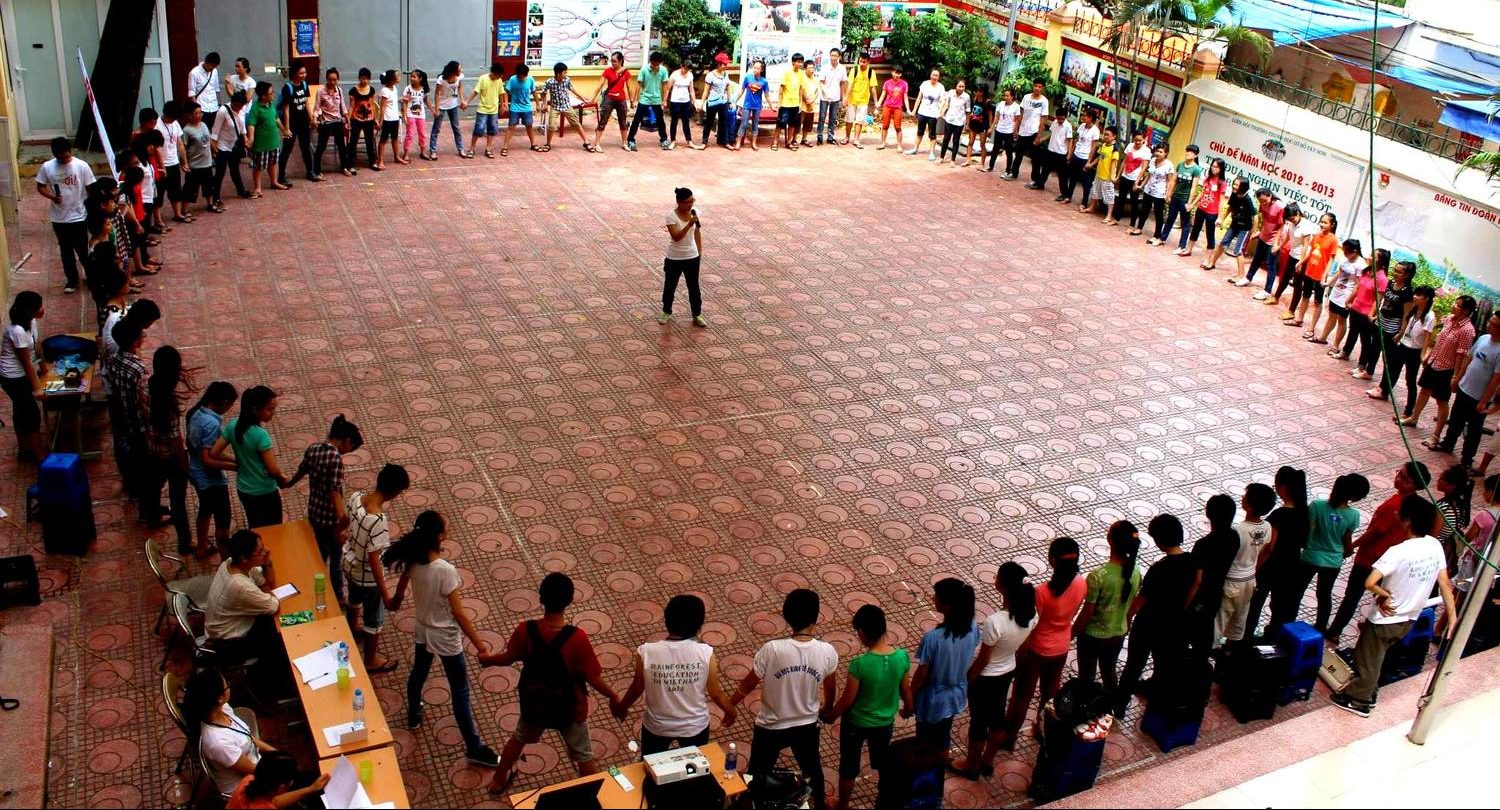
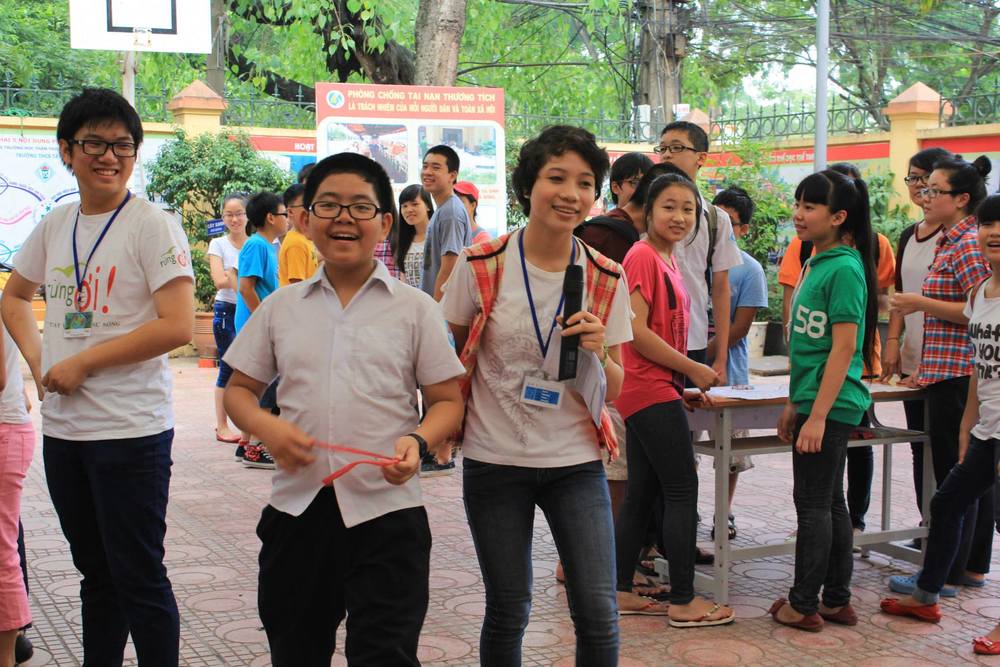
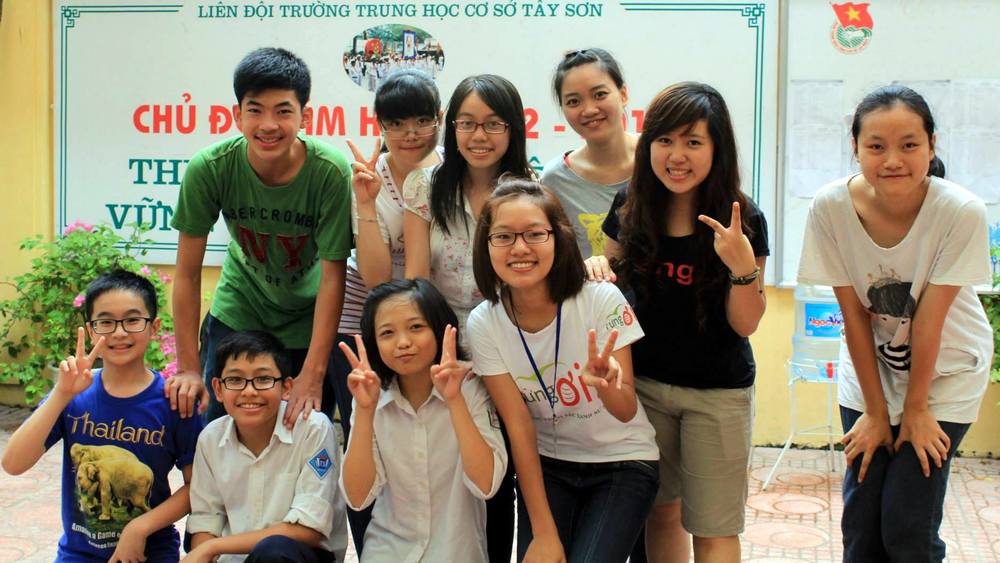
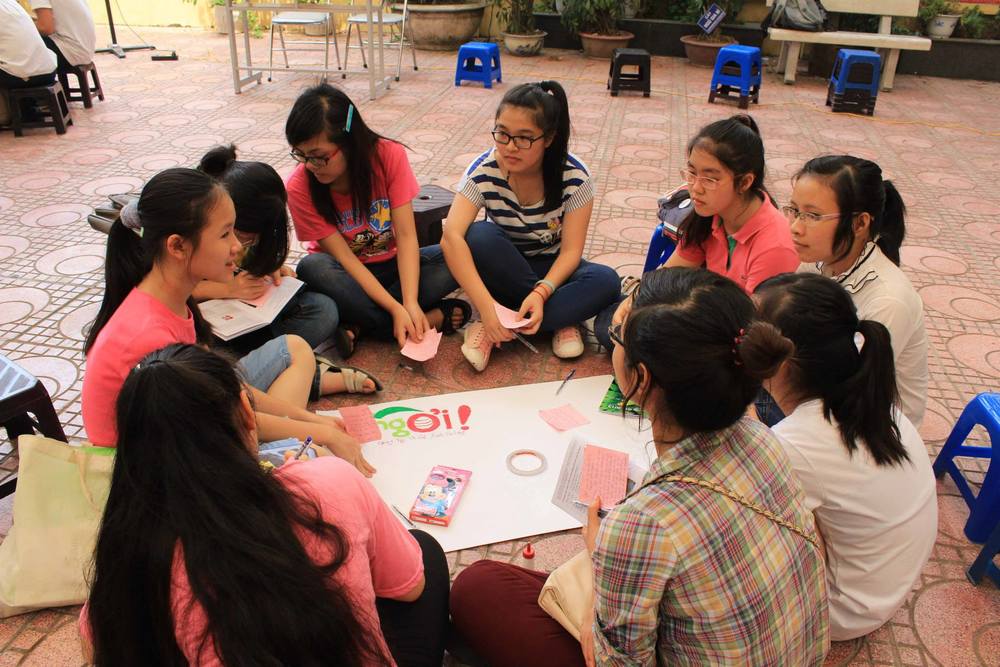
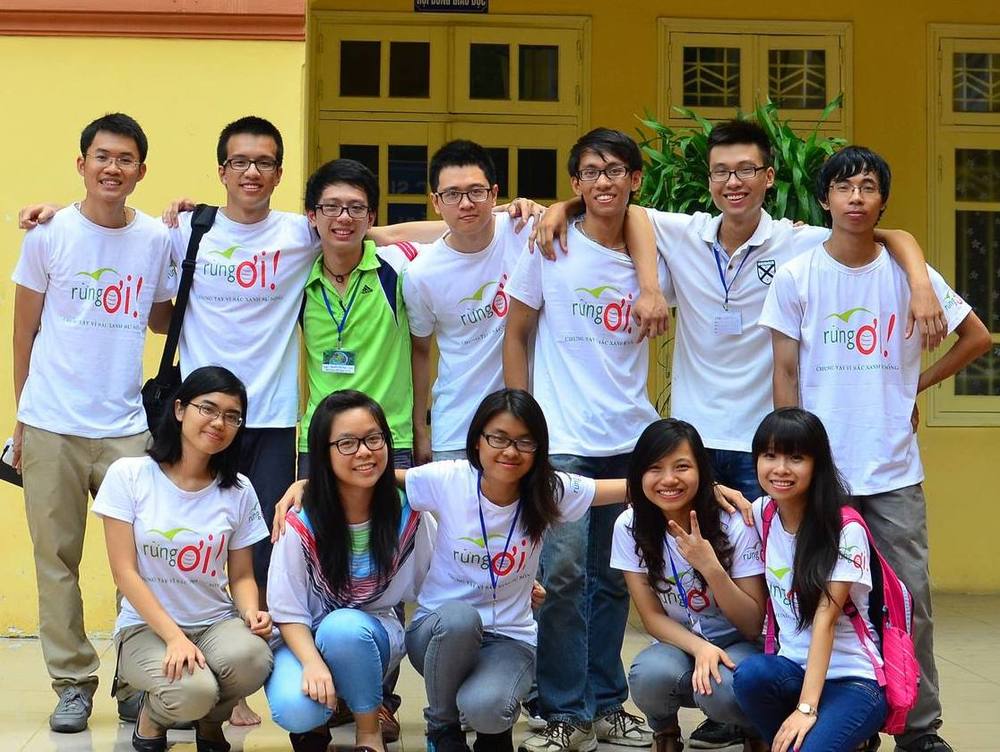
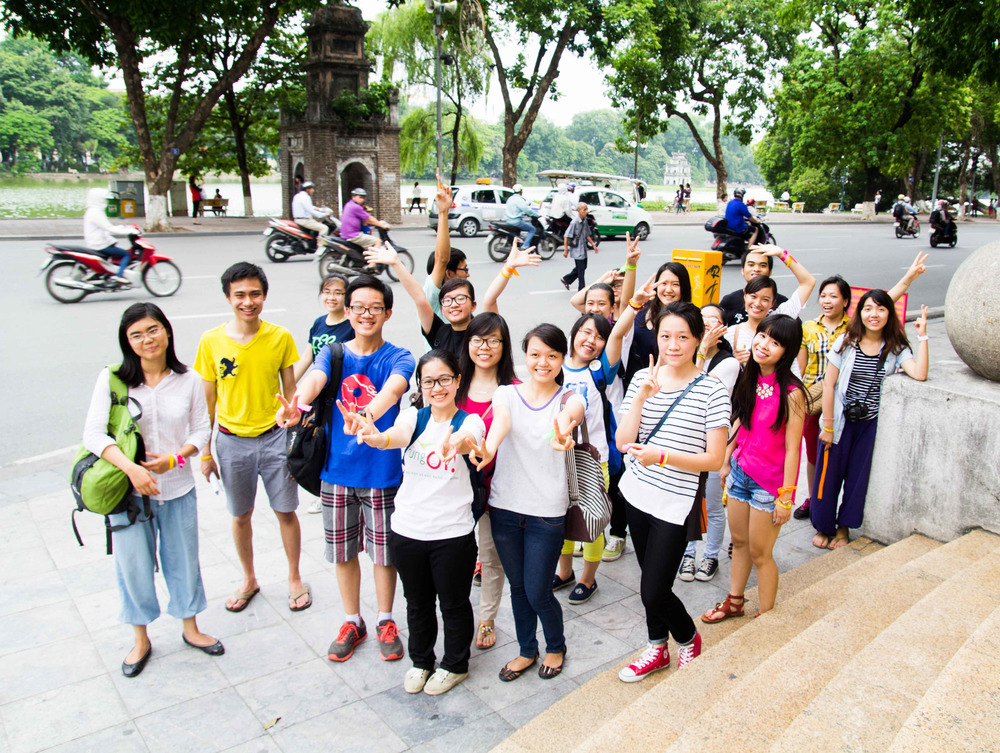
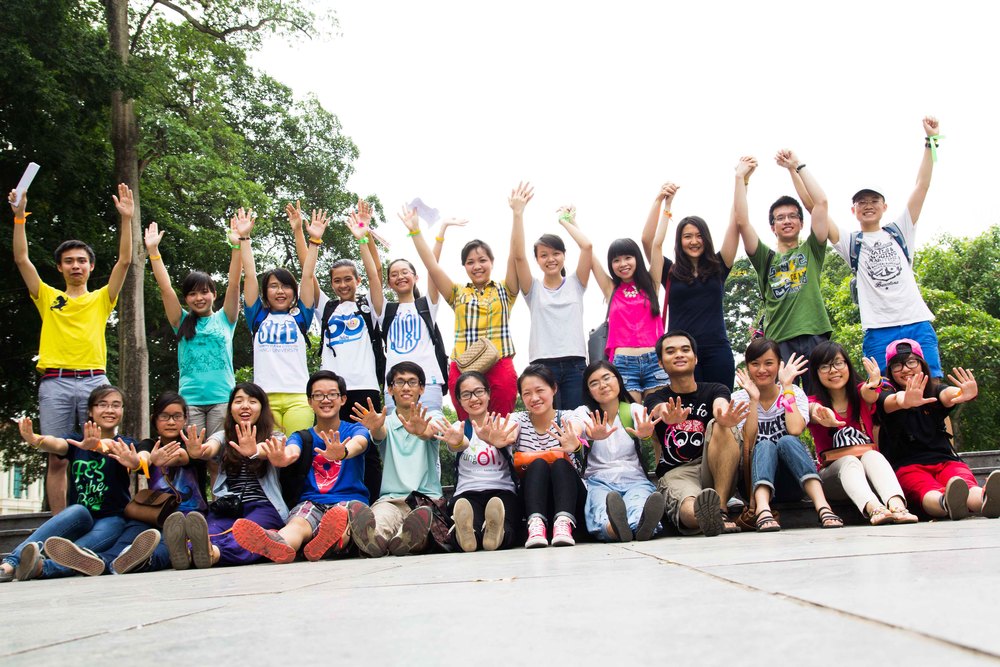

Got something to say?